
Find Help
More Items From Ergsy search
-

How does a wealth tax differ from an income tax?
Relevance: 100%
-

What is a Wealth Tax?
Relevance: 89%
-

What is the wealth tax in the UK?
Relevance: 87%
-

Would a wealth tax replace other taxes in the UK?
Relevance: 87%
-

What is the objective of a wealth tax?
Relevance: 85%
-

What is the Wealth Tax in the UK?
Relevance: 82%
-

Why doesn't the UK have a wealth tax?
Relevance: 82%
-

Has the UK ever had a wealth tax?
Relevance: 80%
-

Can a wealth tax be levied annually?
Relevance: 80%
-

What are common arguments in favor of a wealth tax?
Relevance: 79%
-
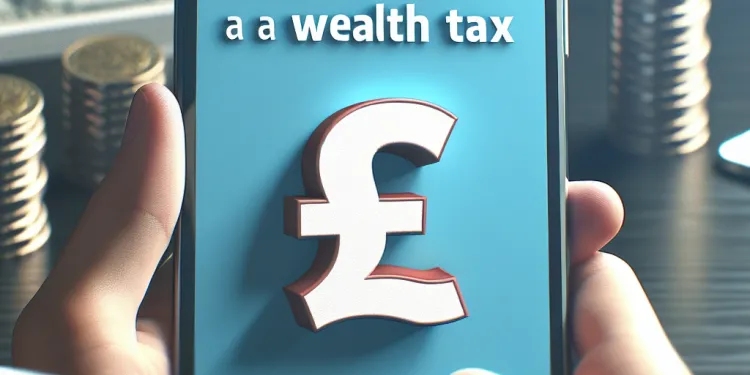
What are the challenges of implementing a wealth tax?
Relevance: 79%
-

Could a wealth tax encourage tax avoidance?
Relevance: 79%
-

Are there any countries currently implementing a wealth tax?
Relevance: 79%
-

Can a wealth tax impact economic behavior?
Relevance: 79%
-

How might a wealth tax impact inequality in the UK?
Relevance: 78%
-

Could a wealth tax affect economic growth in the UK?
Relevance: 78%
-

Would a wealth tax apply to foreign assets?
Relevance: 77%
-

Who is typically subject to a wealth tax?
Relevance: 77%
-

How might a wealth tax affect wealthy individuals?
Relevance: 77%
-

How do economists view the impact of wealth taxes?
Relevance: 76%
-
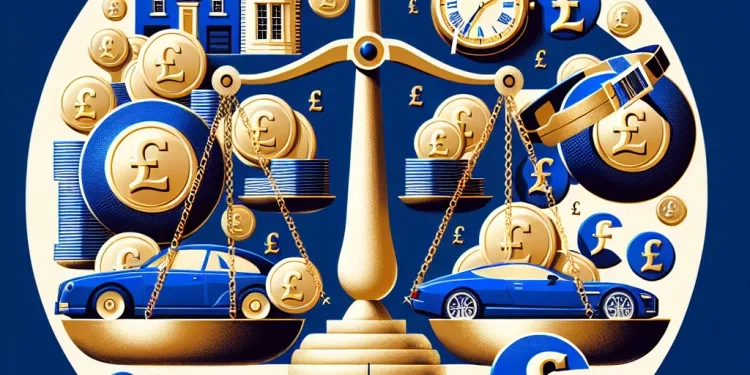
What arguments are made for a wealth tax in the UK?
Relevance: 76%
-

Has any political party in the UK supported a wealth tax?
Relevance: 75%
-

How do other countries implement a wealth tax?
Relevance: 75%
-

Is real estate included in wealth tax calculations?
Relevance: 75%
-

How is a wealth tax typically calculated?
Relevance: 75%
-

What are the administrative costs of a wealth tax?
Relevance: 75%
-
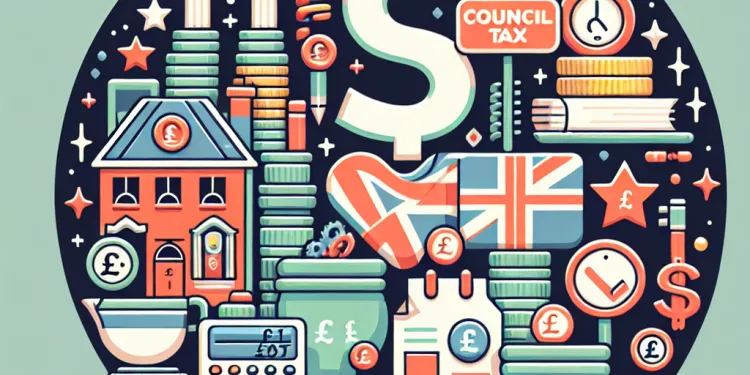
How does council tax relate to wealth in the UK?
Relevance: 73%
-

How do governments ensure compliance with wealth tax laws?
Relevance: 69%
-

Do I need to declare my ISA income on my tax return?
Relevance: 64%
-

Will income thresholds for tax reliefs be revised in 2026?
Relevance: 64%
-
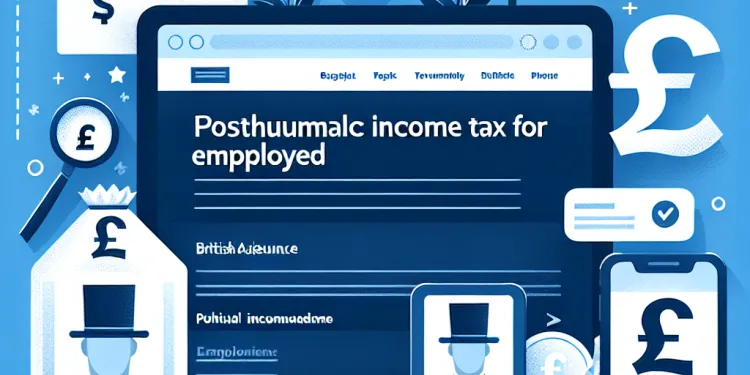
What happens to a deceased’s Income Tax if they were employed?
Relevance: 63%
-

Could there be a reduction in the basic rate of income tax by 2026?
Relevance: 62%
-

What are HMRC Income Tax Changes in April 2026?
Relevance: 62%
-

What are the HMRC income tax changes coming into effect in April 2026?
Relevance: 59%
-

Higher Income Tax - How to Claim Pension Tax Relief | Extra 20% Boost
Relevance: 59%
-
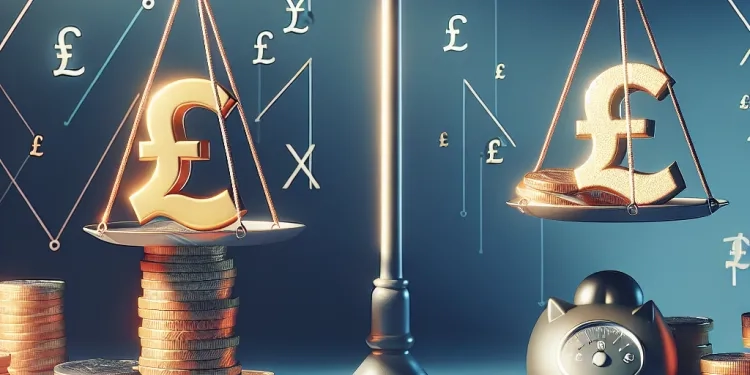
What taxes in the UK target wealth?
Relevance: 58%
-

Are there alternatives to a wealth tax for addressing inequality?
Relevance: 58%
-

What are common criticisms of a wealth tax?
Relevance: 57%
-
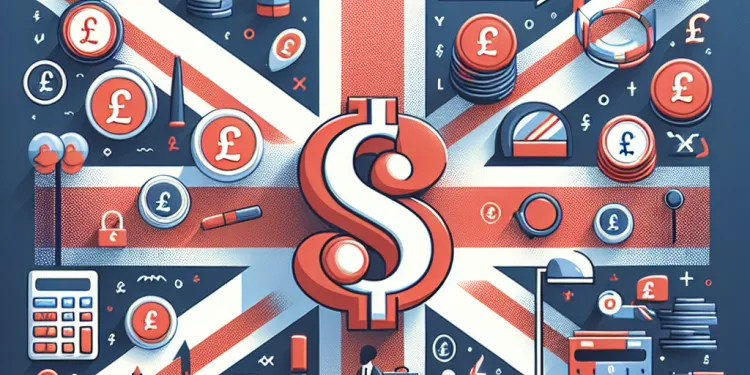
What should business owners expect from income tax changes in 2026?
Relevance: 56%
-

Do wealth taxes differ between countries?
Relevance: 56%
Introduction to Taxation
In the realm of taxation, understanding the different types of taxes that governments impose is crucial for individuals and businesses alike. Two common types of taxes that often come under discussion are wealth tax and income tax. While both are forms of taxation, they differ significantly in terms of what they target, how they are assessed, and their economic implications. This article provides an insight into how a wealth tax differs from an income tax, with particular reference to the context within the UK.
What is an Income Tax?
Income tax is a levy imposed by the government on the financial income generated by individuals, corporations, and other legal entities within their jurisdiction. It is generally calculated as a percentage of the earned income, which may include wages, salaries, dividends, interest, and rental income. In the UK, income tax is a major source of revenue for the government, funding public services such as education, healthcare, and infrastructure. The UK income tax system is progressive, meaning that higher income earners pay a greater percentage, with different bands for basic, higher, and additional rates.
What is a Wealth Tax?
In contrast, a wealth tax is levied on the net market value of assets owned. This can include real estate, investments, personal property, and other forms of wealth. Rather than being based on money earned within a given period, wealth tax is assessed on the total value of accumulated assets. Wealth taxes are less common than income taxes and typically target high-net-worth individuals with significant asset holdings. Although the UK does not currently impose a national wealth tax, similar concepts exist, such as taxes on property and inheritance, which are forms of wealth-based taxation.
Differences Between Wealth Tax and Income Tax
The fundamental difference between wealth tax and income tax lies in their bases: wealth tax targets accumulated assets, while income tax targets yearly earnings. Consequently, income tax is a reflection of an individual’s cash flow within a specific timeframe, whereas wealth tax considers the total value of what a person owns at a given time. Another distinction is in administration and enforcement; income tax is usually easier to ascertain as it revolves around recorded transactions and earnings, while assessing an accurate value of one's assets for a wealth tax can be more complex and controversial, due to fluctuating market values and potential for evasion.
Economic and Social Implications
The implementation of these taxes also varies in their socio-economic impact. Income taxes can serve to reduce disposable income and possibly influence spending behavior, while wealth taxes could encourage the redistribution of wealth and address economic inequality. However, they may also discourage savings and investment. In the UK, discussions around the introduction of a wealth tax often focus on striking a balance between fair wealth distribution and maintaining economic growth and investment incentives.
Introduction to Taxes
Taxes are money that people and businesses pay to the government. There are different kinds of taxes. Two common ones are wealth tax and income tax. They are both taxes but are different in how they work. This guide will explain how these two taxes are not the same, especially in the UK.
What is Income Tax?
Income tax is money you pay to the government from the money you earn. This includes money from jobs, savings, and investments. In the UK, income tax pays for things like schools, hospitals, and roads. The more you earn, the higher percentage of tax you pay. There are different rates, called bands, such as basic, higher, and additional rates.
What is Wealth Tax?
Wealth tax is money paid on what you own. This includes houses, cars, and other valuable things. It is not about your income, but the total value of your possessions. Wealth tax is less common than income tax and usually applies to people with lots of valuable things. The UK doesn't have a national wealth tax, but there are taxes on things like property and inheritance that are similar.
How are Wealth Tax and Income Tax Different?
Wealth tax and income tax focus on different things. Income tax is about how much you earn each year. Wealth tax is about the value of what you own. Income tax is usually more straightforward because it deals with money you earn. Wealth tax can be harder to figure out because the value of things can change.
Effects on People and the Economy
Taxes affect people and the economy in different ways. Income tax can reduce the amount of money people have to spend. Wealth tax can help share wealth more equally but might make people save or invest less. In the UK, people talk about how to use taxes to be fair and also help the economy grow.
If you find taxes hard to understand, you can use tools like diagrams or talk to someone who can explain them in a simple way.
Frequently Asked Questions
What is a wealth tax?
A wealth tax is a tax on an individual's net worth, which includes all assets like cash, real estate, stocks, etc., minus liabilities.
What is an income tax?
An income tax is a tax imposed on an individual or entity's income, including wages, salaries, dividends, interest, and other earnings.
How are wealth tax and income tax calculated differently?
Wealth tax is calculated based on a person's total net worth, whereas income tax is calculated based on the total income or earnings within a given period, usually annual.
Which assets are taxed under a wealth tax?
Assets such as property, cash, investments, businesses owned, and other personal investments are taxed under a wealth tax.
Does income tax affect wealth directly?
Income tax affects wealth indirectly by reducing the amount of income that can be saved or invested, but it does not directly tax existing wealth.
Is wealth tax applicable every year?
Yes, wealth tax is typically assessed annually based on the value of an individual's net assets at a specific point in time.
Who usually pays a wealth tax?
Wealth taxes are typically levied on individuals with a net worth above a certain threshold, aiming to tax very wealthy individuals.
Are there countries that have both wealth and income taxes?
Yes, some countries implement both wealth and income taxes as part of their tax systems, though wealth taxes are less common.
How does wealth tax affect income-generating assets?
Wealth tax is levied on the value of the assets themselves, not the income they generate, which might lead to greater scrutiny of asset management.
Which tax is more commonly used worldwide: wealth tax or income tax?
Income tax is more commonly used worldwide. While some countries implement a wealth tax, many have either modified or eliminated it due to administrative challenges.
How do exemptions and deductions differ between wealth and income taxes?
Income tax systems often feature various deductions and exemptions for different income types, while wealth taxes may have fewer exemptions and can vary significantly in how exemptions are applied to asset types.
What are the administrative challenges of implementing a wealth tax?
Challenges include accurately assessing the value of diverse asset classes, preventing evasion, and handling cross-border issues for assets held abroad.
What are the potential economic impacts of a wealth tax?
A wealth tax could encourage tax avoidance, impact savings and investment decisions, and affect liquidity since it taxes even unrealized gains.
Can a wealth tax change someone's financial behavior?
Yes, individuals might change their investment strategies or alter asset holdings to minimize wealth tax liabilities.
What is the primary goal of imposing a wealth tax?
The primary goal is typically to reduce wealth inequality by redistributing wealth from the very wealthy to fund public services.
Are unrealized gains subject to wealth tax?
Yes, wealth tax can be levied on unrealized gains since it is based on the value of the assets, not on whether they have been sold or realized.
How do progressive tax rates apply to wealth tax versus income tax?
Both wealth and income taxes can use progressive tax rates, meaning higher rates apply to higher levels of wealth or income, though the structure and thresholds can differ greatly.
What is a common argument against wealth tax?
A common argument is that it can lead to capital flight, where wealthy individuals relocate to jurisdictions with more favorable tax treatments.
Do wealth taxes typically have high or low thresholds?
Wealth taxes generally have high thresholds, targeting only the very wealthy, in order to focus on reducing wealth inequality.
What are some potential benefits of a wealth tax?
Potential benefits include reducing wealth inequality, generating revenue for public services, and encouraging economic equity.
What is a wealth tax?
A wealth tax is money that rich people pay to the government. It is based on how much stuff they own, like houses, cars, and money.
Here's a tip to understand better: Think about paying a small part of what you have to help everyone. This helps the community.
To make it clearer, you can use pictures or videos. These tools can show how wealth tax works.
A wealth tax is a money charge on a person's total wealth. This includes everything a person owns, like money, houses, and stocks, after taking away any debts they owe.
What is an income tax?
Income tax is money you pay to the government from what you earn. When people work and get paid, they give part of their money to help pay for schools, roads, and hospitals. It is like sharing to help everyone. If you want support with understanding money, you can ask someone you trust or use tools like pictures or videos to help explain it.
Income tax is money you pay from what you earn. This can include money from your job, money from a business, or money from savings.
How do you figure out wealth tax and income tax?
A wealth tax is money you pay based on everything you own.
An income tax is money you pay based on how much money you make in a year.
For more help, you can use a calculator tool or ask a friend to explain more.
What things are taxed in a wealth tax?
A wealth tax is when you pay money on things you own.
Here are some things that might be taxed:
- Houses and land you own.
- Money you have, like in a bank account.
- Cars or boats you own.
- Jewelry or art that is expensive.
If you find this hard to understand, you can ask someone to help explain.
Things like houses, money, stocks, and businesses that people own are taxed with a wealth tax.
If you need help understanding, you can use picture cards or ask someone to read it with you.
Does paying income tax change how much money you have?
When you earn money from a job, you have to pay a bit to the government. This is called income tax.
Income tax can make the money you keep smaller.
If you pay a lot of income tax, you have less money to save or spend. This means it can change how much money you have.
To understand this better, you can:
- Use a calculator to see how much tax you pay.
- Ask an adult to explain it in simple words.
- Read books or watch videos about money.
Income tax is money you pay to the government from what you earn. It means you have less money to save or use to make more money. But income tax does not take away the money you already have saved.
Do you have to pay a wealth tax each year?
Here's what you need to know:
- A wealth tax means paying money to the government if you have lots of money or valuable things.
- You might have to pay this tax every year, but it depends on the rules where you live.
- You can ask an adult or a tax expert to help you understand if you need to pay.
- Using a calendar can help you remember to check about the tax each year.
Yes, a wealth tax is usually checked every year. It looks at how much a person's things are worth at a certain time.
Who pays tax on money and things they own?
Taxes on wealth are money paid by people who have lots of money and things. These taxes only apply to people who have more than a certain amount of money or stuff.
Do some countries have both taxes on money and taxes on what you earn?
Yes, some countries have taxes on money you make (income tax) and on what you own (wealth tax). But, taxes on what you own are not very common.
What happens to money-making things when there is a wealth tax?
A wealth tax is money people pay on what they own, like houses or cars, not on the money they earn. This means people might have to pay more attention to what they own and how they take care of it.
Which tax do more countries use: wealth tax or income tax?
Countries use different taxes to collect money. The two types are:
- Wealth tax: This is a tax on the things you own, like houses and cars.
- Income tax: This is a tax on the money you earn from work or other sources.
If you want to learn more about these taxes, you can:
- Use picture stories to see how taxes work.
- Watch videos that explain taxes in a fun way.
- Ask a teacher or helper to explain the taxes to you.
Income tax is used a lot around the world. Some countries have a wealth tax. But many have changed it or stopped using it because it is hard to manage.
What are the differences between exemptions and deductions in wealth and income taxes?
Sometimes people don't have to pay as much tax. There are two ways this can happen: exemptions and deductions.
Exemptions: This means you don't have to pay tax on some of your money or things. It's like a part that is not counted.
Deductions: This is money you can take away from how much tax you owe. It reduces the tax you have to pay.
Tools that can help you understand more:
- Use a calculator to see how numbers work.
- Ask a friend or adult for help with big words.
- Watch videos that explain taxes simply.
Income tax rules can be different for each kind of money you earn. You might get to keep more money because of these special rules. Wealth tax rules don't have as many special rules, and they can be very different. These rules depend on what you own and how the taxes work with what you own.
What problems can happen when starting a wealth tax?
There are some problems. These problems include:
1. Figuring out how much different types of things are worth.
2. Stopping people from cheating the system.
3. Dealing with problems when things are owned in other countries.
Using pictures or simple charts can help understand these problems better. Python should be made available. A trusted friend or helper may also be useful to discuss these topics.
How could a wealth tax affect money and jobs?
A wealth tax is a kind of tax on money and things people own. Some people might try to avoid paying this tax. It could also make people think twice about how they save or invest their money. This tax might mean people have to pay even if they haven't sold their things to get money yet.
Can a wealth tax change how someone uses their money?
A "wealth tax" is when rich people pay extra money to the government.
It might make people spend or save their money in different ways.
Using tools like pictures or videos can help explain this better.
Yes, people might change how they invest their money or what they own to pay less in wealth taxes.
What is the main reason for having a wealth tax?
A wealth tax is a way for the government to get money from people who have a lot. The government uses this money to help people and pay for things like schools and hospitals. This tax helps to make things fairer for everyone.
Some tools or techniques to help understand money ideas include:
- Using pictures to show how money works
- Playing games that teach about money
- Asking someone to explain things in a simple way
The main aim is to make sure everyone has a fair share of money. This means taking some money from very rich people to help pay for things everyone uses, like schools and hospitals.
Do you have to pay a tax on money you have not made yet?
Yes, you can be taxed on how much your things are worth, even if you haven't sold them to get money. This is called a wealth tax.
How do different tax rates work for wealth tax and income tax?
Wealth and income taxes can both go up as people have more money. This is called progressive tax rates. This means if you have more money, you will pay a higher tax rate. The way this works and the money levels it starts at can be very different.
Why do some people say 'No' to wealth tax?
Some people don't like the idea of a wealth tax. Here is why:
- They think it might make rich people leave the country.
- They worry it could hurt the economy.
- They say it might be hard to know how much a person is really worth.
If reading is tricky, you can use tools like text-to-speech. This tool reads words out loud to help understand.
Some people say that rich people might move their money to other places if taxes are too high. They might go to places where they pay less tax.
Do Wealth Taxes Start at High or Low Amounts?
Wealth taxes are charges or money you have to pay. They are for people who have a lot of money or things. But they only start when you have above a certain amount.
High Threshold: This means you need a lot of money or things before you pay the tax.
Low Threshold: This means you do not need as much money or things before you pay the tax.
Some tools to help understand:
- Use Pictures: Pictures or charts can show how much money you need before paying taxes.
- Ask for Help: Talk to someone who knows about money and taxes.
- Online Help: Websites have easy guides about how taxes work.
Wealth taxes are for people with lots of money. They help make money fairer for everyone.
What are some good things about a wealth tax?
A wealth tax is when rich people pay more money to the government. Here are some good things about it:
- Helps Others: The money can help pay for schools, hospitals, and roads.
- Fairness: It makes things fairer because rich people help share costs.
- Support for Everyone: More money can help people who need it most.
To make reading easier, use tools like text-to-speech apps, or ask someone to read with you. You can also use a highlighter to mark important points.
Good things can happen if we do this:
- It can make money and things fairer for everyone.
- It can help get money for schools, hospitals, and roads.
- It can help everyone get the same chances to do well.
If you find reading hard, you can ask someone to read it to you, or use listening tools like audiobooks.
Useful Links
Have you found an error, or do you have a link or some information you would like to share? Please let us know using the form below.
-->
This website offers general information and is not a substitute for professional advice.
Always seek guidance from qualified professionals.
If you have any medical concerns or need urgent help, contact a healthcare professional or emergency services immediately.
Some of this content was generated with AI assistance. We’ve done our best to keep it accurate, helpful, and human-friendly.
- Ergsy carfully checks the information in the videos we provide here.
- Videos shown by Youtube after a video has completed, have NOT been reviewed by ERGSY.
- To view, click the arrow in centre of video.
- Most of the videos you find here will have subtitles and/or closed captions available.
- You may need to turn these on, and choose your preferred language.
- Go to the video you'd like to watch.
- If closed captions (CC) are available, settings will be visible on the bottom right of the video player.
- To turn on Captions, click settings .
- To turn off Captions, click settings again.
More Items From Ergsy search
-

How does a wealth tax differ from an income tax?
Relevance: 100%
-

What is a Wealth Tax?
Relevance: 89%
-

What is the wealth tax in the UK?
Relevance: 87%
-

Would a wealth tax replace other taxes in the UK?
Relevance: 87%
-

What is the objective of a wealth tax?
Relevance: 85%
-

What is the Wealth Tax in the UK?
Relevance: 82%
-

Why doesn't the UK have a wealth tax?
Relevance: 82%
-

Has the UK ever had a wealth tax?
Relevance: 80%
-

Can a wealth tax be levied annually?
Relevance: 80%
-

What are common arguments in favor of a wealth tax?
Relevance: 79%
-

What are the challenges of implementing a wealth tax?
Relevance: 79%
-

Could a wealth tax encourage tax avoidance?
Relevance: 79%
-

Are there any countries currently implementing a wealth tax?
Relevance: 79%
-

Can a wealth tax impact economic behavior?
Relevance: 79%
-

How might a wealth tax impact inequality in the UK?
Relevance: 78%
-

Could a wealth tax affect economic growth in the UK?
Relevance: 78%
-

Would a wealth tax apply to foreign assets?
Relevance: 77%
-

Who is typically subject to a wealth tax?
Relevance: 77%
-

How might a wealth tax affect wealthy individuals?
Relevance: 77%
-

How do economists view the impact of wealth taxes?
Relevance: 76%
-

What arguments are made for a wealth tax in the UK?
Relevance: 76%
-

Has any political party in the UK supported a wealth tax?
Relevance: 75%
-

How do other countries implement a wealth tax?
Relevance: 75%
-

Is real estate included in wealth tax calculations?
Relevance: 75%
-

How is a wealth tax typically calculated?
Relevance: 75%
-

What are the administrative costs of a wealth tax?
Relevance: 75%
-

How does council tax relate to wealth in the UK?
Relevance: 73%
-

How do governments ensure compliance with wealth tax laws?
Relevance: 69%
-

Do I need to declare my ISA income on my tax return?
Relevance: 64%
-

Will income thresholds for tax reliefs be revised in 2026?
Relevance: 64%
-

What happens to a deceased’s Income Tax if they were employed?
Relevance: 63%
-

Could there be a reduction in the basic rate of income tax by 2026?
Relevance: 62%
-

What are HMRC Income Tax Changes in April 2026?
Relevance: 62%
-

What are the HMRC income tax changes coming into effect in April 2026?
Relevance: 59%
-

Higher Income Tax - How to Claim Pension Tax Relief | Extra 20% Boost
Relevance: 59%
-

What taxes in the UK target wealth?
Relevance: 58%
-

Are there alternatives to a wealth tax for addressing inequality?
Relevance: 58%
-

What are common criticisms of a wealth tax?
Relevance: 57%
-

What should business owners expect from income tax changes in 2026?
Relevance: 56%
-

Do wealth taxes differ between countries?
Relevance: 56%


